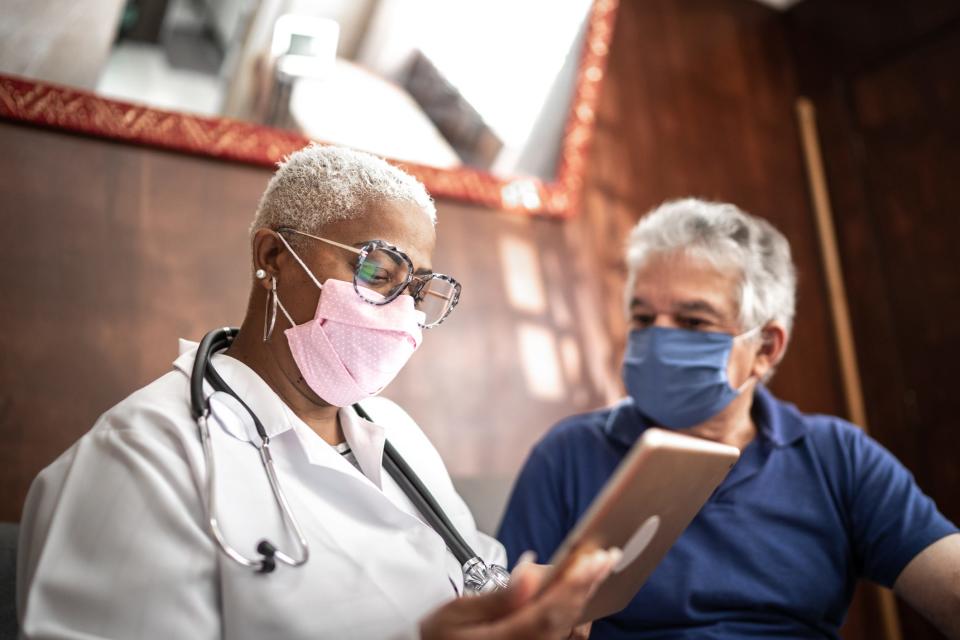What's the 'lived experience' of diverse Americans? A large-scale NIH survey is seeking the answer.
Though four of Mary Anne Foo’s aunts had breast cancer, her family rarely spoke of the disease. One aunt even underwent surgery and didn’t tell anyone, driving herself home from the operation and treatments.
Research has shown breast cancer rates increased as much as six-fold for Asian women after immigrating to the United States.
But, Foo wondered, what about women like her aunts, who have lived here for generations? Are there environmental factors that have put them at risk? Is it diet-related? How does stigma impact diagnosis and treatment of Asian American women?
Foo had all these questions and more. “We have all of this breast cancer – we should be talking about why,” she said. “If we could get data about the community, and get that information out there, we’d be able to explain.”
It’s why the community health researcher, who is Chinese and Japanese, founded the Orange County Asian and Pacific Islander Community Alliance, a nonprofit aimed at supporting the health, social and economic well-being of those communities through outreach and research.
Most recently, the California nonprofit has been helping recruit participants for the National Institutes of Health’s All of Us research program, a project aiming to create the largest biomedical database of 1 million diverse people across the nation.
'They're really, really struggling': Native Hawaiian children were already grappling with poor health and food insecurity. Then came COVID-19.
Last week, the NIH launched the project’s latest survey, this time taking a pulse on social and environmental factors that impact health.
Foo said for underserved communities, including her own Orange County groups of Pacific Islanders, South and East Asians, linking health outcome data with social data can help fill research gaps and guide understanding of what leads to poor health outcomes.
“The more data that’s out there, the more we’ll know how to do precision medicine,” Foo said, referring to a clinical strategy that personalizes treatment by considering genetic, environmental and lifestyle factors. The latest survey aims to do that by adding to health data the program has already been collecting.
Survey questions range from asking about proximity to markets, access to transportation for health care appointments, whether the participants’ neighborhoods have parks and sidewalks, neighborhood safety, mental health and ability to afford food.

Dr. Cheryl Clark, a Harvard Medical School professor and co-chair of the program’s Social Determinants of Health Task Force, created the survey.
“What we tried to do when we developed the social determinants of health questionnaire is to try to really measure that lived experience,” she said, adding the surveys also inquire about isolation, discrimination experiences, and feelings of loneliness, which has been linked to weakened immunity and inflammation. “How do those environments influence susceptibility for disease? How do we start to think about prevention?”
Clark said the purpose is to provide context for biomedical data and health outcomes.
“It gives us this holistic view of health, so that we can... look at nature, biology, social science,” she said. “The questions we chose are really grounded in science.”
Why is this still an issue? How doctors' assumptions about LGBTQ patients can be harmful to their health
Studies already underway using All of Us data include exploring cancer among Hispanic immigrants and U.S.-born Hispanics, mental health and environmental stressors of pregnant Black people, and LGBTQ health.
Dr. Sally Baxter, an ophthalmologist at the University of California, San Diego, has been using the data to study patients with glaucoma, an eye condition in which the optic nerve is damaged and gets worse over time. It’s the leading cause of blindness in Black people, who disproportionately suffer from the disease.
“A lot of the social determinants are not well represented in the electronic health record data,” said Baxter, who is studying health care barriers and medication adherence in patients with glaucoma. Her research found some patients couldn't afford medications, but weren’t comfortable asking their doctors for lower-cost prescriptions.
“These kinds of patterns we wouldn’t have necessarily been able to tease out without the data from All of Us,” she said. The finding, she added, reminds clinicians to consider and initiate conversations about medication costs with patients. Collecting more details about patients' social situations and environments through the latest survey will help clinicians like herself better understand such barriers to care, she said.
National Alliance for Hispanic Health is another community organization that's recruiting participants. Jane Delgado, the alliance's chief executive officer, said she hopes the data helps shed light on "the whole person."
“This is a wealth of information that has been untapped,” she said. “This will increase our knowledge base about health and wellness.”
Delgado, a clinical psychologist, said the surveys will contribute to studying diversity and subgroups within various racial and ethnic categories, including Hispanic people who account for about 19% of the U.S. population at roughly 60 million.
“We live long and suffer,” Delgado said of Hispanic people, who are estimated to have longer life expectancies than non-Hispanic whites, but disparate health conditions like diabetes and obesity.
“For too long, health data was driven by mortality data,” she said. “But how about how we live? That is very important too. And that forms our health.”
Reach Nada Hassanein at nhassanein@usatoday.com or on Twitter @nhassanein_.
This article originally appeared on USA TODAY: NIH survey aims to measure 'lived experience' of diverse Americans

